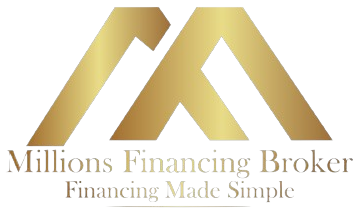Mortgage

A mortgage is a type of loan specifically used for purchasing or refinancing real estate. It is a crucial financial product that enables individuals and businesses to acquire property by borrowing funds from a lender, typically a bank or a mortgage company. The borrower agrees to repay the loan, with interest, over a predetermined period, commonly ranging from 15 to 30 years. Understanding the intricacies of mortgages, their benefits, types, and considerations is essential for anyone looking to buy property. By understanding the legal and regulatory frameworks, account holders can ensure compliance and maximize the advantages offered by offshore banking.
Key Components of a Mortgage
Principal: The principal is the amount of money borrowed to purchase the property. For example, if you buy a house for $300,000 and make a down payment of $60,000, the principal would be $240,000.
Interest: Interest is the cost of borrowing the principal. It is expressed as an annual percentage rate (APR). Interest rates can be fixed, remaining constant throughout the loan term, or variable, changing periodically based on market conditions.
Term: The term of the mortgage is the length of time over which the loan must be repaid. Common terms are 15, 20, and 30 years. A shorter term generally means higher monthly payments but less interest paid over the life of the loan.
Down Payment: The down payment is an upfront payment made by the borrower, usually a percentage of the property’s purchase price. Larger down payments can result in better loan terms and lower monthly payments.
Amortization: Amortization is the process of paying off the loan through regular payments that cover both principal and interest. In the early years of the loan, a larger portion of the payment goes toward interest, while in later years, more of the payment goes toward reducing the principal.
Types of Mortgages
Fixed-Rate Mortgages: These loans have an interest rate that remains constant throughout the loan term, providing predictable monthly payments. They are ideal for borrowers who prefer stability and long-term planning.
Adjustable-Rate Mortgages (ARMs): ARMs have interest rates that can change periodically based on market conditions. They typically start with a lower initial rate compared to fixed-rate mortgages, which can adjust after a set period.
Government-Backed Mortgages: These include loans insured by government agencies such as the Federal Housing Administration (FHA), the Department of Veterans Affairs (VA), and the USDA. They often have more flexible qualification criteria and lower down payment requirements.
Jumbo Mortgages: Jumbo loans are for amounts that exceed the conforming loan limits set by the Federal Housing Finance Agency (FHFA). These are used for purchasing high-value properties and often come with stricter credit requirements and higher interest rates.
Benefits of a Mortgage
Homeownership: Mortgages make it possible for individuals to own homes without needing the entire purchase price upfront, enabling more people to become homeowners.
Investment: Real estate is often considered a sound investment that can appreciate over time. Homeownership also allows for the building of equity, which can be tapped into through home equity loans or lines of credit.
Tax Benefits: In many regions, mortgage interest payments are tax-deductible, providing a significant financial benefit to homeowners.
Financial Flexibility: Mortgages offer a structured way to repay large amounts of money over time, which can help maintain cash flow for other investments or expenses.
Considerations When Getting a Mortgage
Credit Score: A higher credit score can secure better interest rates and loan terms. Borrowers should review their credit reports and address any issues before applying for a mortgage.
Interest Rates: It’s important to shop around and compare rates from different lenders to find the most favorable terms. Interest rates can significantly impact the total cost of the loan.
Monthly Payments: Borrowers should ensure they can comfortably afford the monthly mortgage payments, including principal, interest, taxes, and insurance (PITI).
Loan Fees and Closing Costs: Mortgages come with various fees, including origination fees, appraisal fees, and closing costs, which can add up. Borrowers should be aware of these additional costs when planning their budgets.
Prepayment Penalties: Some mortgages have penalties for paying off the loan early. Understanding the terms and potential penalties is crucial to avoid unexpected costs.
Conclusion
A mortgage is a powerful financial tool that enables property ownership and investment. By understanding the key components, types, benefits, and considerations associated with mortgages, borrowers can make informed decisions that align with their financial goals and circumstances. Whether purchasing a first home, refinancing an existing mortgage, or investing in real estate, a well-chosen mortgage can provide long-term financial benefits and stability.
